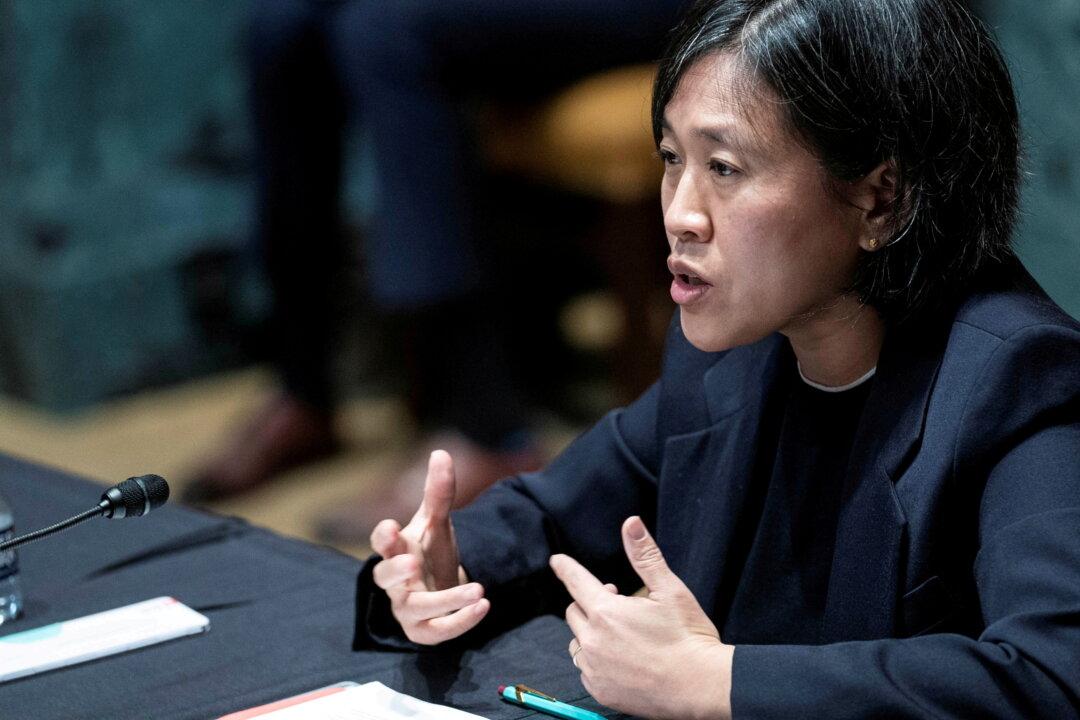The top U.S. trade negotiator vowed on Oct. 4 to unwind some Trump-era tariffs on Chinese goods and to press the Chinese regime for “frank” talks, in a bid to end Beijing’s unfair trade practices.
In recent decades, Beijing has poured billions in state subsidies into targeted industries such as steel, solar, and agriculture, leading to the shuttering of U.S. factories and a “zero-sum dynamic in the world economy,” U.S. Trade Representative Katherine Tai told an Oct. 4 panel hosted by Washington-based think tank Center for Strategic and International Studies.





